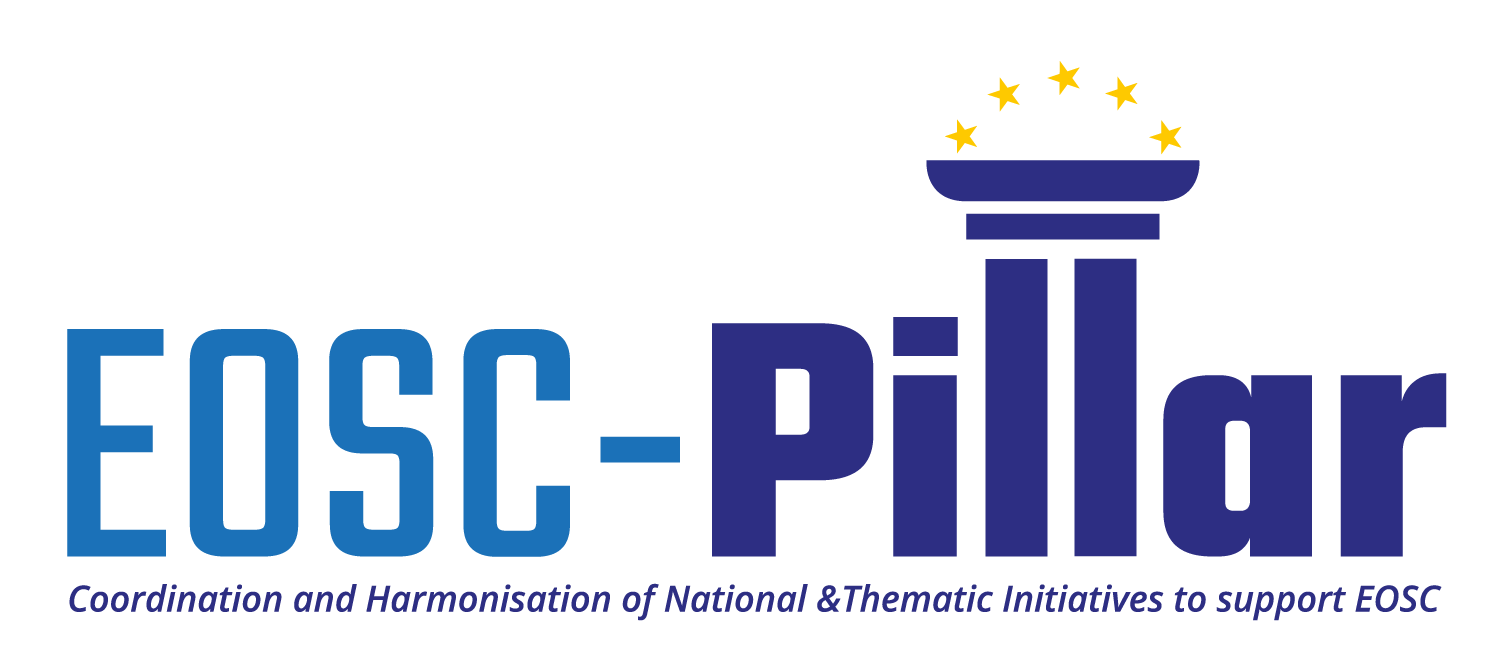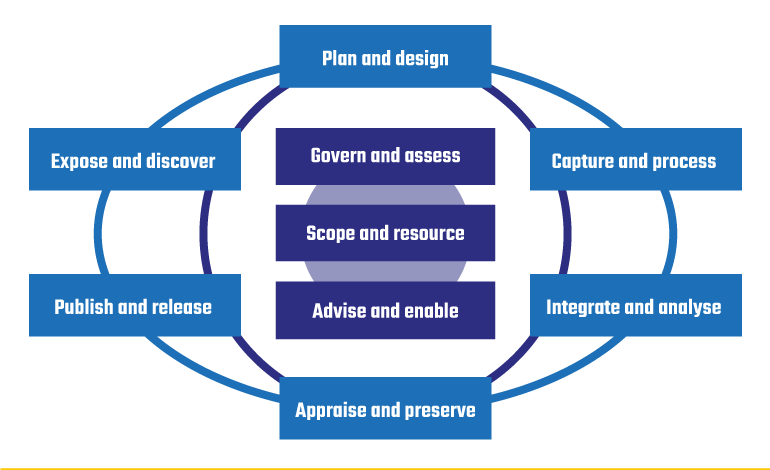
RDM Training and support catalogue
The EOSC-Pillar RDM Training and support catalogue is a collection of online searchable resources for Data Stewardship and Research Data Management support. It includes training materials, but it also includes day-to-day, operational and readily available resources that can be used by data stewards to support researchers. However, these resources might be useful for other target groups as well.
The Catalogue is available on D4Science, it is a work in progress and is currently being expanded.
The records in this catalogue can be filtered according to different categories: skills group, professional target group, subject, keywords, etc. The categorisation aligns with the outputs of other key H2020 projects such as the EOSCPilot and FAIRsFAIR.
Training and Support Catalogue
Skills Groups
It is possible to filter according to skill groups. Two types of skills groups are defined:
Research Lifecycle
A set of competences and capabilities that are usually applied in project-specific ways.
Plan and design
Planning and design of data, research software and other outputs, including the associated documentation. This will include all relevant steps including identifying requirements of research output users, the organisation and research funders, establishing effective approaches to meet their requirements, then reviewing this planning.
Capture and process
Capturing and processing of data or related materials to enable research evidence to be prepared for analysis; provisioning of secure managed access to networked storage, scalable to meet demands, plus resources, tools, standards and workflows for collaboration between research team members, and relevant third parties.
Integrate and analyse
Developing and applying appropriate methods to enable lines of enquiry to be formulated and pursued towards the research objectives, by assembling and integrating selected data, software, systems, or other resources, and enabling relevant knowledge and techniques to be applied in their analysis and transformation into research outputs.
Appraise and preserve
Developing and applying appropriate methods to appraise research outputs for their compliance with ethical, FAIR and research integrity principles, their value to the organisation and to research reproducibility, and their potential to serve new purposes or communities; planning and taking action to mitigate risks to long-term access for further appraisal.
Publish and release
Describing research products and their inter-relationships, providing access to meet the needs of their providers, users, and other stakeholders, in order to maintain or enhance their value and comply with ethical, FAIR and research integrity principles and policies.
Expose and discover
Ensure that processes and mechanisms for providing access to research products and their inter-relationships follow technology developments, community standards, and good practices for compliance with ethical, FAIR and research integrity principles.
Generic capabilities
A set of generic, cross-cutting skills that can be applied across different projects.
Govern and assess
Developing and maintaining the organisation’s strategies, policies, and processes on FAIR/open research outputs, and associated documents and processes that enable these to be implemented, and relevant laws or regulations to be complied with. Continually reviewing these strategies, policies and processes through stakeholder consultation, communication, and impact monitoring.
Scope and resource
Identifying the scope of research data services and stewardship activities and securing the resources to sustain these. Continually reviewing the business case considering the service value propositions, processes, and relevant costs and benefits, taking into account governance processes and timelines, and the need for cost recovery mechanisms to comply with funder requirements.
Advise and enable
Management of services that enable data stewardship and open research, and the online or face-to-face training and support that service customers need to make effective use of them. This will include interacting with relevant professional service units, managing stakeholder relationships, and making continuous improvements to these.
Training and Support Catalogue




